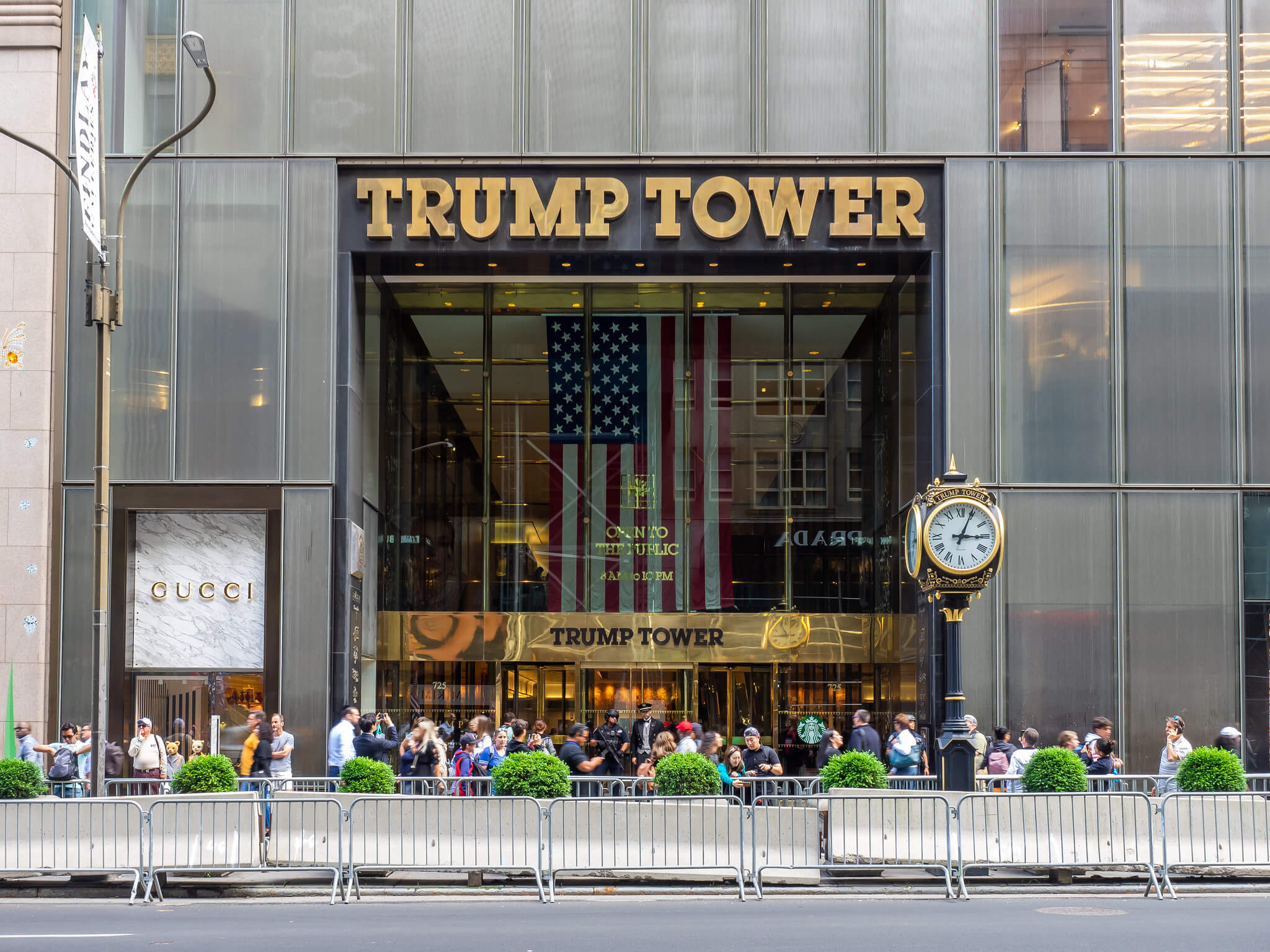The Situation: Crypto Scams and Gratuities Laws

The Situation on Monday tried to take seriously President Trump’s ideas of imposing tariffs on foreign films and reopening Alcatraz.
This morning, driving to work, I found myself listening to the estimable Tim Miller and the no-less-estimable Jonathan V. Last on the Bulwark Podcast discussing the president’s crypto scams.
The two gentlemen were despairing that there may not be any way to stop the almost monumental corruption that Trump and his grifting family business are unleashing before everyone’s eyes.
I think their despair is premature, and I would like to sketch out a path to deter companies and individuals from taking part in the Trump crypto grift. At least a bunch of the participants in these schemes are very likely committing crimes, and it’s time to start shouting from the rooftops that people are watching and will not forget when power shifts hands.
Let’s start with the way these schemes work, described in admirable detail recently by the New York Times:
Mr. Trump’s return to the White House has opened lucrative new pathways for him to cash in on his power, whether through his social media company or new overseas real estate deals. But none of the Trump family’s other business endeavors pose conflicts of interest that compare to those that have emerged since the birth of World Liberty.
The firm, largely owned by a Trump family corporate entity, has erased centuries-old presidential norms, eviscerating the boundary between private enterprise and government policy in a manner without precedent in modern American history.
Mr. Trump is now not only a major crypto dealer; he is also the industry’s top policy maker. So far in his second term, Mr. Trump has leveraged his presidential powers in ways that have benefited the industry—and in some cases his own company—even though he had spent years deriding crypto as a haven for drug dealers and scammers.
First, there’s the Trump family memecoin:
Investors in the $Trump memecoin are bidding to become the top 220 owners of the collectible coin and win a dinner with the president later this month. A memecoin is a type of cryptocurrency based on an online joke or celebrity mascot that has no practical function other than speculation.
The $Trump memecoin is controlled by a company run by the Trump sons and their business partners, but President Trump has actively encouraged his supporters to buy it.
Javier Selgas, chief executive at Fr8Tech, a shipping company, announced this past week—while Eric Trump and Donald Trump Jr. were abroad—that his Monterrey, Mexico-based company would spend $20 million to buy $Trump memecoin tokens.
Buying the tokens—in essence, giving money to the Trump family—is “an effective way to advocate for fair, balanced and free trade between Mexico and the U.S.,” Mr. Selgas said in a statement, which was also filed with the S.E.C., as his company is publicly traded.
There’s also World Liberty Financial, a kind of crypto-currency bank owned by Trump, his family members, and some partners, that is doing a brisk business in transactions fees:
A fund backed by Abu Dhabi, he said, would be making a $2 billion business deal using the Trump firm’s digital coins.
That transaction would be a major contribution by a foreign government to President Trump’s private venture—one that stands to generate hundreds of millions of dollars for the Trump family. And it is a public and vivid illustration of the ethical conflicts swirling around Mr. Trump’s crypto firm, which has blurred the boundary between business and government.
Zach Witkoff, a founder of the Trump family crypto firm, World Liberty Financial, revealed that a so-called stablecoin developed by the firm would be used to complete the transaction between the state-backed Emirati investment firm MGX and Binance, the largest crypto exchange in the world.
The Times reporters who are writing these stories seem chiefly interested in the manifold conflicts of interest that inhere in these businesses, when Trump is shaping crypto policy and enforcement.
But let’s focus for a minute on a different aspect of these schemes: They all involve someone intentionally putting money directly in Trump’s pocket. Which is to say that they involve what Last called on the Bulwark Podcast corruption “at scale” that stems from Trump’s controlling the platforms. Another way to describe someone putting money in an official’s pocket is as a “gratuity,” and federal law makes gratuities illegal—at least if it’s done with any hope of affecting policy. These are not campaign contributions, which are legal within a certain prescribed framework. These, rather, are literally monies given to the officeholder, and the circumstances under which those are legal are much more circumscribed.
So I have a word of caution for anyone attempting to line Trump’s crypto wallet in hopes of getting favorable treatment on, say, free trade and shipping logistics or on crypto enforcement matters or on some other policy question: Before you do it, take a look at two federal criminal statutes you may be about to violate.
The first of these is 18 U.S.C. § 201(c), which reads in relevant part:
Whoever ... otherwise than as provided by law for the proper discharge of official duty ... directly or indirectly gives, offers, or promises anything of value to any public official, former public official, or person selected to be a public official, for or because of any official act performed or to be performed by such public official, former public official, or person selected to be a public official ... shall be fined under this title or imprisoned for not more than two years, or both.
Trump, who is a beneficiary of the crypto schemes but is not directly accepting these payments, is not—without more—vulnerable to prosecution under this law. For one thing, we have no evidence that he even knows who is giving him money—at least in some cases, though in others, he clearly has some information. He is shielded from that knowledge by several layers of obfuscation: his sons run his business, for example. He is not doing the deals himself.
What’s more, Trump has immunity for official acts under the Supreme Court’s interpretation of, well, no known constitutional text. So even if he had exposure under the statute, he would, at the very least, be able to throw up a great number of legal obstacles in front of any attempted prosecution. No, this isn’t about prosecuting Trump.
Rather, it’s about the people who are actively pumping things “of value” to him through a company he is known to own, and who are doing so with specific policy goals in mind. They are subjecting themselves to significant risk under the law. Perhaps not now, while the guy they’re trying to enrich is in charge of the Justice Department that would be responsible for prosecuting these crimes. But, if I were their lawyer, I would point out that crimes have statutes of limitations—and these ones run longer than this presidency.
In a 1999 case, U.S. v. Sun Diamond Growers of California, the Supreme Court made clear that it wasn’t enough to show that people were giving gratuities to a public official because the person holds office. “We hold that, in order to establish a violation of 18 U.S.C. § 201(c)(1)(A), the Government must prove a link between a thing of value conferred upon a public official and a specific ‘official act’ for or because of which it was given,” wrote Justice Antonin Scalia for a unanimous court.
This means that not all use of Trump’s crypto schemes that make him money are crimes on the part of the “investors”—only those where the money given to him involves a provable “link” between the money “and a specific ‘official act” for or because of which it was given.” That’s an evidentiary burden for the government, but it’s still far from the requirements of the adjacent bribery statute, which requires that the thing of value be given in an attempt “to influence any official act.” If you’re giving the president money and you’re doing it because you want him to do an “official act” (which the Supreme Court has interpreted narrowly) in his capacity as president, or to thank him for doing something, you’re committing a crime. And you’re committing a crime whether he accepts the gratuity or whether he never even knows he got it.
Now take a look at 18 U.S.C. § 209(a), which reads:
Whoever receives any salary, or any contribution to or supplementation of salary, as compensation for his services as an officer or employee of the executive branch of the United States Government, of any independent agency of the United States, or of the District of Columbia, from any source other than the Government of the United States, except as may be contributed out of the treasury of any State, county, or municipality; or
Whoever, whether an individual, partnership, association, corporation, or other organization pays, makes any contribution to, or in any way supplements, the salary of any such officer or employee under circumstances which would make its receipt a violation of this subsection—
Compared to the gratuities law, it’s a little less clear that this provision applies to the president, since there is a bit of a debate over whether the president is, or isn’t, “an officer or employee of the executive branch.”
That said, if I were a lawyer advising business executives about whether it would be wise to “make[] any contribution to, or in any way supplement[], the salary” of the president, I would be constrained to note that such supplementing of the president’s salary is a felony if done willfully depending on how five justices of the Supreme Court might later interpret the word “officer.” And I would strongly urge them to not roll those particular dice.
I know what you’re thinking. You’re thinking: What does it matter if lining the president’s pockets in order to get favorable regulatory or enforcement treatment is unlawful? The FBI under Kash Patel is not going to investigate me for it, and the Justice Department under Pam Bondi is not going to prosecute me for it. Just look at TikTok. The law says it’s not supposed to be on app stores any more, yet there it is. Crypto is similarly unbound under this administration. The law is for suckers.
And that is wholly correct—for now.
There is no prospect of current enforcement. So deterring people from this conduct requires something more subtle.
It requires congressional promises of future investigation, if and when the political tides change, and it requires opposition political aspirants to demand a thorough Justice Department investigation when the executive branch changes hands. The statutes of limitations on these laws expire sometime after Trump will no longer be in office. People who engage in this corrupt activity should do so knowing that they will come under a withering congressional scrutiny perhaps less than two years from now and that the fruits of those investigations will be available to prosecutors as soon as prosecutors are willing to receive them. Only yesterday, Sen. Richard Blumenthal wrote a letter declaring that the Permanent Subcommittee on Investigations had opened an investigation, implying that some congressional inquiry—which may have deterrent value of its own—may not even wait two years.
Note also that not all prosecutors are federal. The entities playing these pay-to-play games are doing so all over the place—some overseas, some domestically. And some states have Democratic attorneys general, or local prosecutors, who are in a position to take a look at these transactions right now under whatever parallel state laws may exist.
If I were a Democratic senator who had presidential aspirations, I might give a Senate speech on this subject just reminding people that the law is the law, that power shifts, and the current impunity for corruption ends as soon as it does so.
The Situation continues tomorrow.





